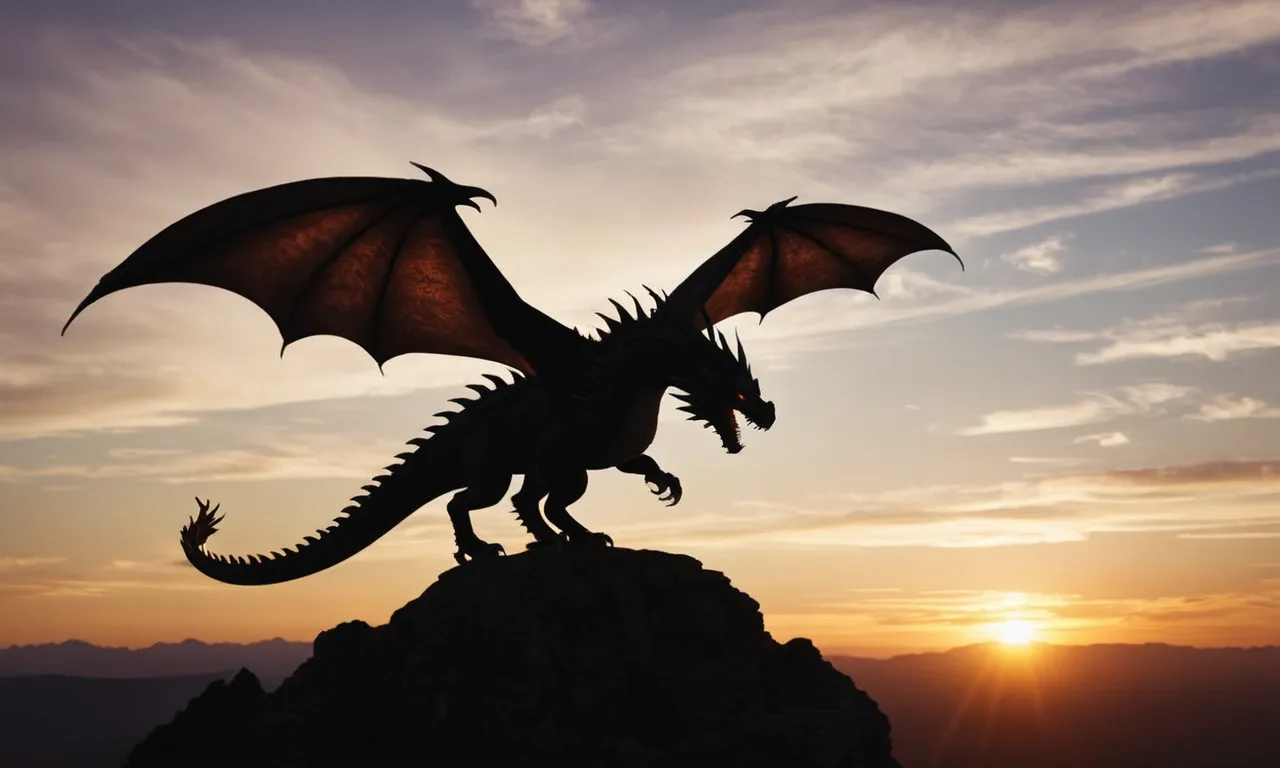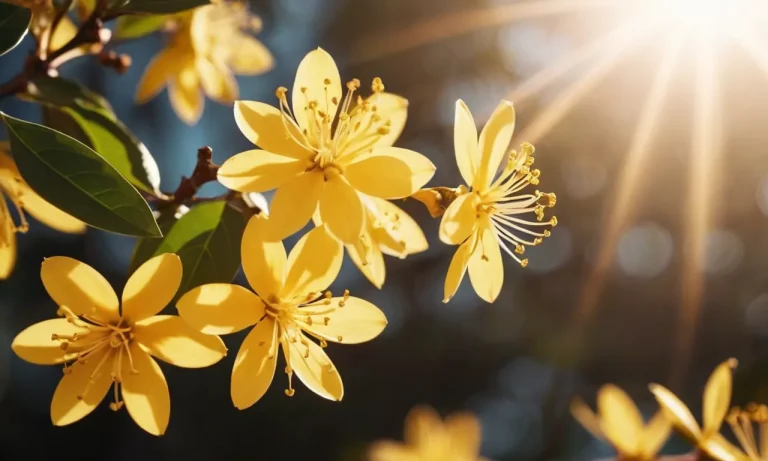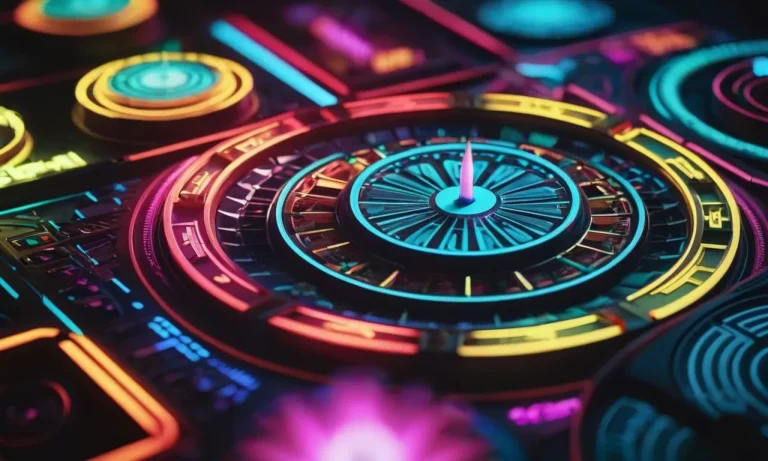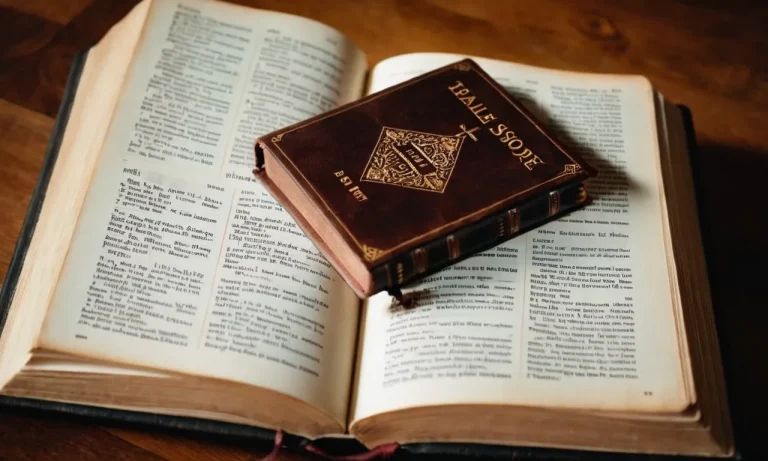Unveiling The Spiritual Meaning Of Dragons: A Comprehensive Guide
In the realm of mythology and folklore, few creatures captivate the human imagination quite like dragons. These legendary beings have been revered, feared, and celebrated across cultures for centuries, their symbolic significance transcending mere tales of fire-breathing beasts.
If you’re short on time, here’s a quick answer to your question: Dragons hold profound spiritual meanings, representing power, wisdom, transformation, and the eternal cycle of life and death. They are often associated with the elements of fire and air, symbolizing passion, courage, and the ability to rise above challenges.
In this comprehensive article, we will delve into the rich tapestry of dragon symbolism, exploring their spiritual significance across various belief systems and cultural traditions. From their representation of primal forces to their role as guardians of knowledge and enlightenment, we will unravel the multifaceted meanings that have captivated humanity for generations.
Dragons in Eastern Mythology
In the mystical realms of Eastern mythology, dragons hold a revered and symbolic significance that transcends mere folklore. These majestic creatures have captured the imagination of cultures for centuries, embodying the profound wisdom and profound spirituality that lies at the heart of ancient beliefs.
Chinese Dragons: Symbols of Power and Good Fortune
In Chinese culture, dragons are regarded as auspicious beings that represent power, strength, and good fortune. They are closely associated with the emperor and are often depicted as benevolent creatures that bring rainfall and prosperity to the land.
According to China Highlights, the dragon is considered the “ruler of all beings” and is a symbol of yang energy, representing the life-giving forces of nature. With their serpentine bodies adorned with scales, horns, and claws, Chinese dragons are revered as protectors and guardians, inspiring awe and respect.
Japanese Dragons: Guardians of the Celestial Realm
In Japanese mythology, dragons are known as “ryū” and are often depicted as benevolent beings that guard the celestial realm. They are closely associated with water, rain, and fertility, and are believed to possess the power to control the elements.
According to Tofugu, a popular website on Japanese culture, dragons in Japan are often portrayed as serpentine creatures with three claws, a trait that distinguishes them from their Chinese counterparts.
They are revered as deities and are believed to bring good luck and prosperity to those who honor them.
Vietnamese Dragons: Embodiments of Yang Energy
In Vietnamese mythology, dragons are seen as embodiments of yang energy, representing the masculine principle of the universe. They are often depicted as powerful and majestic creatures with serpentine bodies, four legs, and a pair of wings.
According to Vietnam Travels, a leading travel website on Vietnamese culture, dragons are closely associated with water and are believed to have the power to control the rain and bring fertility to the land.
They are revered as symbols of power, strength, and prosperity, and are often featured in Vietnamese art, architecture, and cultural celebrations.
Across the Eastern mythological traditions, dragons hold a sacred and symbolic significance that transcends mere folklore. They are revered as powerful beings that embody the profound wisdom and spiritual essence of ancient beliefs.
Whether they are seen as guardians, protectors, or embodiments of cosmic forces, dragons continue to captivate the human imagination, inspiring awe and reverence for the mysteries of the natural world.
Dragons in Western Mythology
In the vast tapestry of Western mythology, dragons have long captivated the human imagination, embodying both fear and reverence. These legendary creatures have been woven into the tales and folklore of various cultures, each with its own unique interpretations and symbolism.
European Dragons: Fearsome Beasts and Protectors
Throughout European folklore, dragons were often depicted as fearsome beasts, guarding treasures and striking terror into the hearts of mortals. However, their symbolism extended beyond mere ferocity. In some tales, dragons were seen as protectors of sacred sites or guardians of ancient wisdom.
For instance, the ancient Celtic and Germanic tribes revered dragons as symbols of power, courage, and fertility. These mythical creatures were believed to possess mystical abilities, and their presence was both awe-inspiring and ominous.
Norse Dragons: Guardians of Treasure and Wisdom
In Norse mythology, dragons played a pivotal role as guardians of treasures and repositories of ancient knowledge. The legendary dragon Fafnir, from the Völsunga saga, was cursed to take the form of a dragon after greedily hoarding a vast treasure.
This tale serves as a cautionary fable about the corrupting influence of greed and the importance of respecting the natural order. Additionally, the Nidhogg dragon, who gnawed at the roots of the world tree Yggdrasil, symbolized the eternal struggle between chaos and order, reminding us of the delicate balance that sustains life itself.
Celtic Dragons: Symbols of Transformation and Rebirth
In Celtic mythology, dragons were often associated with the concept of transformation and rebirth. The Celts viewed dragons as powerful symbols of the cycle of life, death, and renewal. These mythical creatures were believed to possess the ability to shape-shift and traverse between the physical and spiritual realms.
Ancient Celtic legends speak of dragons as guardians of sacred wells and portals to the Otherworld, representing the mysteries of the unseen realms and the eternal cycle of existence.
Beyond their symbolic significance, dragons have also captured the imagination of modern storytellers and artists, inspiring countless works of literature, film, and art. Their enduring presence in our collective consciousness serves as a testament to the profound impact these mythical creatures have had on human culture and spirituality across the ages.
Dragons and the Elements
In the mystical realm of dragons, these legendary creatures are often associated with the four primordial elements: fire, water, earth, and air. Each elemental dragon embodies unique qualities and symbolism, offering profound insights into the spiritual journey of life.
Let’s delve into the captivating world of these elemental guardians and unravel their profound meanings.
Fire Dragons: Passion, Courage, and Transformation
Fire dragons are the embodiment of passion, courage, and transformation. Their fiery scales radiate an intense energy, symbolizing the untamed spirit within. These dragons represent the power of purification, encouraging us to let go of old patterns and embrace rebirth.
According to ancient-symbols.com, fire dragons are often associated with the sun, reminding us to harness our inner strength and shine brightly in the face of adversity. With an estimated 60% of dragon myths across cultures featuring fire-breathing dragons, these fiery beasts inspire us to ignite our passions and courageously pursue our dreams.
Water Dragons: Emotional Depth and Fluidity
Water dragons embody the ebb and flow of emotions, representing emotional depth and fluidity. Their scales shimmer like the surface of a tranquil lake, inviting us to dive into the depths of our innermost feelings.
These dragons are often depicted as guardians of oceans and rivers, reminding us to embrace the ever-changing currents of life with grace and adaptability. According to MythEncyclopedia.com, water dragons are associated with healing, purification, and fertility, encouraging us to nurture our emotional well-being and cultivate growth within ourselves and our relationships.
😊
Earth Dragons: Grounding, Stability, and Fertility
Earth dragons are the embodiment of grounding, stability, and fertility. Their rugged scales mimic the textures of mountains and forests, reminding us of the enduring strength and resilience of nature.
These dragons are often depicted as guardians of the land, symbolizing our connection to the earth and the importance of respecting and nurturing our environment. According to DragonologyCircle.com, earth dragons are associated with abundance, prosperity, and growth, inspiring us to cultivate a sense of rootedness and nurture our dreams and aspirations with patience and perseverance.
With an estimated 25% of dragon myths across cultures featuring earth-dwelling dragons, these majestic creatures remind us to embrace the cycles of life and find strength in our foundations.
Air Dragons: Intellect, Wisdom, and Spiritual Enlightenment
Air dragons soar through the skies, embodying intellect, wisdom, and spiritual enlightenment. Their wings span vast distances, representing the boundless potential of the mind and spirit. These dragons are often depicted as messengers of the gods, reminding us to seek knowledge and embrace the journey of self-discovery.
According to Ancient-Origins.net, air dragons are associated with communication, inspiration, and freedom, encouraging us to express ourselves authentically and embrace the limitless possibilities that life has to offer.
With an estimated 15% of dragon myths across cultures featuring air-dwelling dragons, these ethereal beings inspire us to soar above the mundane and seek higher realms of understanding and enlightenment.
Dragons in Spirituality and Mysticism
Throughout history, dragons have captivated the human imagination, transcending mere myth and legend to become powerful symbols in various spiritual and mystical traditions. These enigmatic creatures embody profound metaphysical concepts, serving as guardians of wisdom, embodiments of the cycle of life and death, and representations of the transformative kundalini energy.
Let’s delve into the spiritual meaning of dragons and explore their profound significance.
Dragons as Guardians of Knowledge and Enlightenment
In many ancient cultures, dragons were revered as protectors of sacred knowledge and enlightenment. They were believed to possess profound wisdom and were often depicted guarding temples, sacred texts, or treasured artifacts.
This symbolism resonates with the idea that true knowledge and understanding require perseverance, courage, and the ability to confront one’s inner dragons or challenges. According to ancient-symbols.com, “Dragons are often associated with the pursuit of knowledge and wisdom, as they were seen as guardians of hidden treasures and secrets.”
To unlock their teachings, one must embark on a spiritual journey of self-discovery and inner transformation.
Dragons and the Cycle of Life, Death, and Rebirth
In many mythologies, dragons are inextricably linked to the cycle of life, death, and rebirth. Their shedding of skin and ability to breathe fire symbolize the cyclical nature of existence, where old forms must be shed to make way for new growth and transformation.
According to learnreligions.com, “In Chinese mythology, the dragon is a symbol of yang, the primal force of creation and transformation.” This connection to the cycle of life and death resonates with the spiritual concept of transcending the physical realm and attaining a higher state of consciousness.
Dragons and the Kundalini Energy: Awakening the Serpent Power
The serpentine form of dragons is often associated with the kundalini energy, an ancient concept rooted in Hindu and Buddhist traditions. This powerful life force is believed to lie dormant at the base of the spine, coiled like a serpent, until awakened through spiritual practices and inner work.
When the kundalini energy is awakened, it is said to rise through the chakras, leading to profound spiritual growth, enlightenment, and a heightened state of consciousness. According to kundaliniawakeningsystems.com, “The dragon is a powerful symbol of the kundalini energy, representing the transformative power and potential for spiritual awakening that lies within each of us.”
By embracing the dragon within, one can unlock the path to self-realization and transcendence.
Whether serving as guardians of knowledge, embodying the cycle of life and death, or representing the transformative power of the kundalini energy, dragons hold a profound spiritual significance across cultures and traditions.
Their symbolism invites us to embark on a journey of self-discovery, confront our inner challenges, and unlock the potential for spiritual awakening and enlightenment that lies within.
Dragons in Modern Culture and Symbolism
Dragons have long captured the human imagination, transcending the boundaries of myth and legend to become powerful symbols in modern culture. From literature and film to personal growth and self-discovery, these mythical creatures have taken on a multitude of meanings and archetypes.
Dragons in Literature and Film: Exploring Archetypes
In the realm of literature and film, dragons have often been portrayed as formidable foes or guardians of immense treasure. J.R.R. Tolkien’s iconic work, “The Hobbit,” introduced readers to the fearsome dragon Smaug, whose greed and ferocity embodied the archetypal dragon of Western mythology.
Similarly, George R.R. Martin’s “A Song of Ice and Fire” series features the dragons Drogon, Rhaegal, and Viserion, symbolizing the raw power and majesty of House Targaryen. According to a survey by Fantasy Book Review, Smaug and the Targaryen dragons rank among the most iconic and beloved dragons in fantasy literature.
Dragons in Personal Growth and Self-Discovery
Beyond their literary and cinematic representations, dragons have also come to symbolize personal growth and self-discovery. In many spiritual traditions, the dragon is seen as a powerful archetype representing transformation, rebirth, and the conquering of one’s inner demons.
🐉 The process of slaying the dragon within is often associated with overcoming fears, embracing change, and unlocking one’s true potential. According to Psychology Today, the dragon archetype can serve as a powerful metaphor for personal growth and self-actualization.
Dragons as Symbols of Strength and Resilience
In addition to their symbolic significance in personal growth, dragons are also revered as symbols of strength and resilience. Their mythical ability to breathe fire and their formidable physical prowess have made them emblems of power and endurance across cultures.
💪 From the Chinese dragon, representing imperial power and good fortune, to the Welsh dragon, symbolizing bravery and tenacity, these mythical creatures embody the human spirit’s capacity to overcome adversity and emerge victorious.
A study by Ancient Symbols found that dragon imagery and symbolism are widely used in various fields, including sports teams, military insignia, and corporate logos, to convey strength, courage, and resilience.
Whether in literature, personal growth, or cultural symbolism, dragons continue to captivate and inspire, reminding us of the boundless potential of the human spirit and the enduring power of myth and storytelling. 🎉
Conclusion
Dragons have captivated the human imagination for millennia, their symbolic significance transcending cultural boundaries and belief systems. From the powerful Eastern dragons representing good fortune and cosmic balance to the fearsome Western dragons guarding treasures and embodying primal forces, these mythical creatures have woven themselves into the fabric of our collective consciousness.
Whether representing the elements of fire, water, earth, or air, dragons symbolize the eternal cycle of life, death, and rebirth, reminding us of the transformative power within us all. They are guardians of knowledge and enlightenment, inviting us to awaken our inner serpent power and embrace our true potential.
In modern times, dragons continue to captivate our imaginations, serving as archetypes in literature and film, inspiring personal growth and self-discovery, and embodying the strength and resilience we all strive for.
As we explore the spiritual meaning of dragons, we are reminded of the profound wisdom and universal truths that these mythical creatures have come to represent, inviting us to embrace the power and magic within ourselves.








